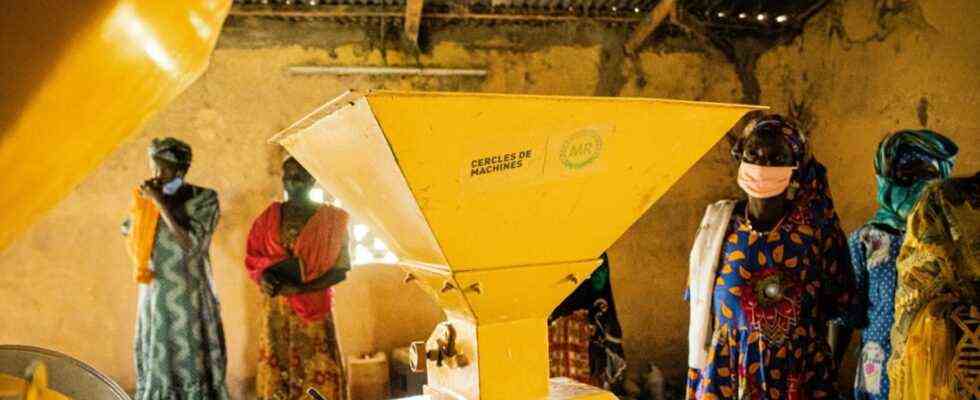A Monday morning causes smiling faces comparatively rarely. But for Erwin Ballis, Managing Director of the Federal Association of Machine Rings, this Monday is a happy day, “because we can show what has become of it”. Because since 2019 the Ballis Association has been running development aid of a different kind, little noticed by the public: by exporting itself from Neuburg an der Donau to Senegal. There, more than 3,000 smallholders have come together to form machine rings in order to better supply themselves and others with food. “Real help for self-help,” says Ballis. And: “In five years we want to improve the living and working conditions of a million people.”
Will that work? At least so far, what seems to complement each other well, which at first glance hardly fits together: smallholder structures on the one hand, technical industrial standards on the other. Many people in rural Senegal work as farmers, primarily for self-sufficiency. Machines are expensive, so there is often only tedious manual work with the hoe. Bernhard Empl estimates that “between one and two hectares” can be farmed by a family. The Dorfener used to run the Erdinger Maschinenring, now he travels from village to village in Senegal to convince people of the idea – given the current situation, “no great art,” says Empl.
Simply put, each new machine ring receives start-up funding of 15,000 euros. Enough to buy aids from local manufacturers: tractors, but also flour mills or mobile threshing machines. “If flour is still being mashed by hand, simple machines can help,” says Ballis. Thanks to them, people can grow more efficiently and more, and yields and sales increase. The profits then flow into the repayment of the financing and other machines. There are also training courses, for example on cultivation methods or operational management. “We have now bought 400 devices and founded 21 machine rings,” reports project manager Jean-Bosco Mbom. The latter are spread across the three regions of Thiès, Kolda and Ziguinchor. The political situation is stable, says Mbom, the work will not be made difficult. Of course, this does not apply to all regions of Senegal; the Federal Foreign Office advises against travel to the border area with Mali due to the latent threat posed by Islamist terrorism.
The German Development Ministry is one of the project partners. The number of local machine rings is expected to rise to 31 by the end of the year, and associations in Kenya are also planned. In addition, more services are to be created along the local value chain. In this way, peanuts could not only be harvested as before, but also processed in the villages. The Senegalese machine ring bosses are now taking additional input from a nine-day tour of Bavaria that took them to the state chancellery and farms. “We have gathered a lot of ideas,” says Pierre Alfred Ndione. “We hope that one day we will also reach this level.”

